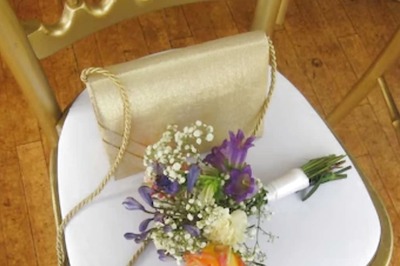
views
Festivals are complete with gaiety, joy, and the coming together of various people, which generally, also involves lots of colors, music, and parades. However, as these celebrations get louder and bigger, one of the most ignored aspects of health—hearing—is often overlooked. Festivals like Diwali, Ganesh Chaturthi, and Durga Puja in India pose a significant but often ignored threat to hearing health. Prolonged exposure to loud sounds for a long time is usually dangerous and can result in hearing loss or other hearing-related concerns. Raja S., Audiologist and Founder, Hearzap shares how loud noises during the festive season harm hearing health
The Decibel Danger
Did you know that sound is measured in something called decibels (dB)? When the sound gets too loud, it can severely damage your hearing. Prolonged exposure to sounds above 85 dB—like heavy traffic or loud music—poses a significant risk. During the festive season, the noise from firecrackers, loudspeakers, drums, and huge crowds—all these noises easily exceed 85 dB, which puts your hearing at risk. Firecrackers alone can produce noise levels exceeding 100 dB, a level that poses a significant threat to your hearing health.
What Happens to Your Ears?
Exposure to high levels of sound, especially during celebrations, can lead to a temporary hearing loss. Have you ever been to a boisterous place and decided to leave and even left the place with the ears ringing loudly where a confusing bounce engages you? That’s called a Temporary Threshold Shift (TTS). It means your ears are in a state of fatigue whereby it is hard to hear certain sounds, and though it usually resolves in a couple of hours or days, unprotected repeated exposure can bring about irreversible hearing impairment.
Who is the Most Endangered?
Excessive noise causes harm to children and the elderly. Young children who are usually in loud exposures such as loud music, firecrackers or loud events may develop hearing problems which are likely to interfere with their learning or even their socializing. At the same time, old age people, particularly those who have chronic hearing loss due to old age or those under treatment are more vulnerable to noise than their younger counterparts.
Protect Your Hearing During Festivals
Protecting your hearing does not mean avoiding celebrations altogether, but rather taking careful approaches. Below are some suggestions to help protect your auditory health over the festive holiday:
- Limit exposure: If you want to avoid a lot of noise, stay away from firecrackers and loudspeakers. Whenever possible, watch the parties from a more peaceful location.
- Use ear protection: Consider using noise-cancelling earplugs or sound-isolating headphones to reduce the impact of loud music.
- Take breaks: If the volume gets too loud, consider stepping away for a while. Sometimes finding peace amidst the chaos is necessary and beneficial for your hearing.
- Raise awareness: Encouraging local communities to adopt noise regulations during festivals can go a long way in minimizing hearing damage for everyone.
Festivals are a vibrant part of Indian culture, but it’s crucial to balance the joy of celebration with health. Hearing health is often overshadowed by the visual and emotional excitement of festivals, but protecting it should be a priority. Understanding the risks of festive noise allows us to take simple preventive steps to ensure that the music, laughter, and joy of these celebrations continue to enrich our lives without risking our well-being.
.




















Comments
0 comment